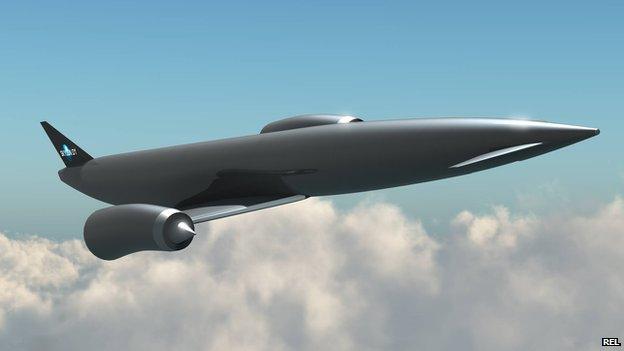Plans for first rocket launch dedicated to Scottish satellite
- Published
Rocket to make Scottish space history
Plans are in place for the first rocket launch dedicated to a Scottish satellite.
It will be the first time a Scottish built orbiter has not had to piggyback on another launch vehicle.
The satellite - called Unicorn 2-a - is another milestone for Scotland's growing space industry.
It is expected to lift off from a launch site in Alaska later this year aboard an American built Vector-R rocket.
A product of Vector Launch Inc., it is designed to lift small satellites into orbit.
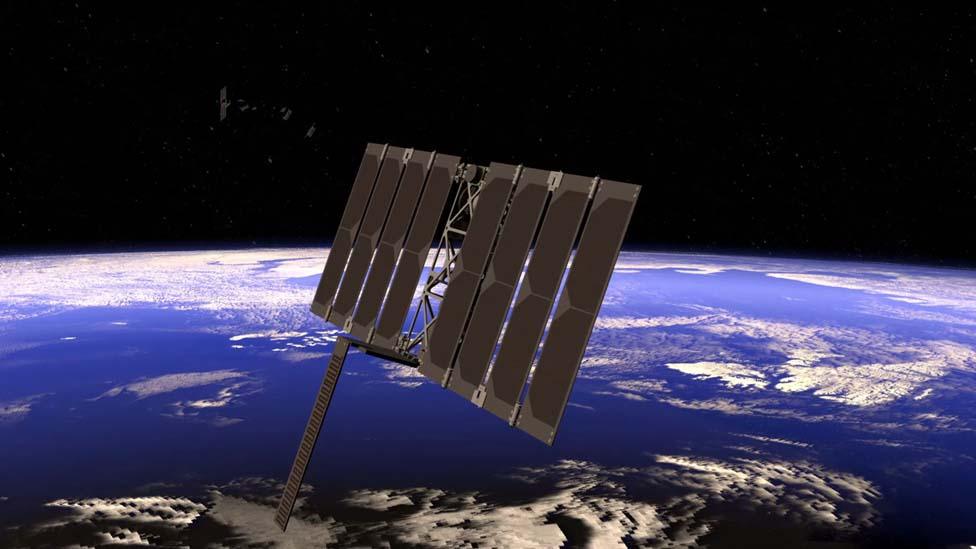
Computer-generated image of satellite in space
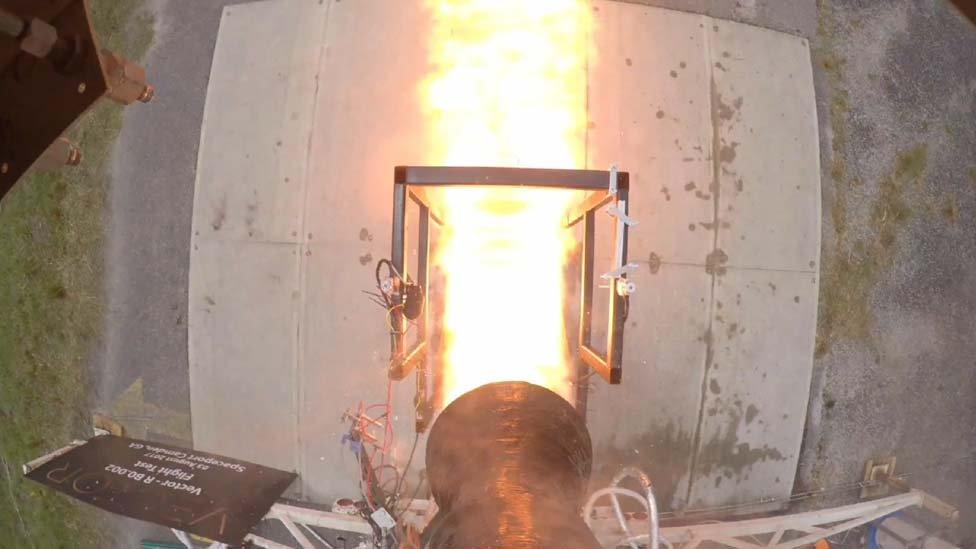
Until now all of Scotland's small satellites have had to piggyback on large rocket vehicles
The company says it will "democratise space" by providing affordable access to orbit.
Growing numbers of small probes called CubeSats are going up.
They are based on one or more cubes, just 10cm across, but that adds up to a litre of instrumentation in space.
The first CubeSat went up 20 years ago.
Since then more than 2,000 others have been launched or are planned. Two are on their way to Mars.
Unicorn 2-a is a type of satellite called a PocketQube.
It is based on an even smaller planform than a CubeSat: a stack of three 5cm cubes.
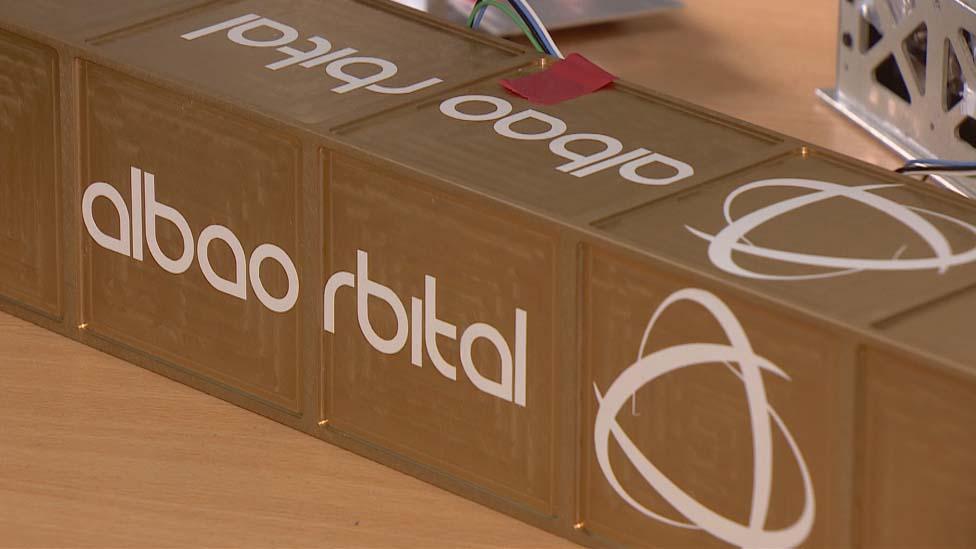
Unicorn 2-a is a type of satellite called a PocketQube
It has been built by the Glasgow company Alba Orbital.
Its founder and chief executive officer Tom Walkinshaw says that in space, small is beautiful.
"It costs more than gold per kilogram to launch a satellite into space, and Alba is really focused on keeping it small - and also making it really capable," he said.
"Because there's no point making a small satellite if it's no good."
Advanced nanoelectronics will pack a lot of punch into a small payload. The mission of Unicorn-2A is to image the Earth by night.
The data can be used to estimate populations, monitor infrastructure or even track the spread of disease.
Alba Orbital plan to launch PocketQubes by the dozen - constellations of satellites to be used for Earth observation, remote sensing and communications.
The launch of the American-made Vector-R will make Alba Orbital the third Scottish company to get a satellite into space.
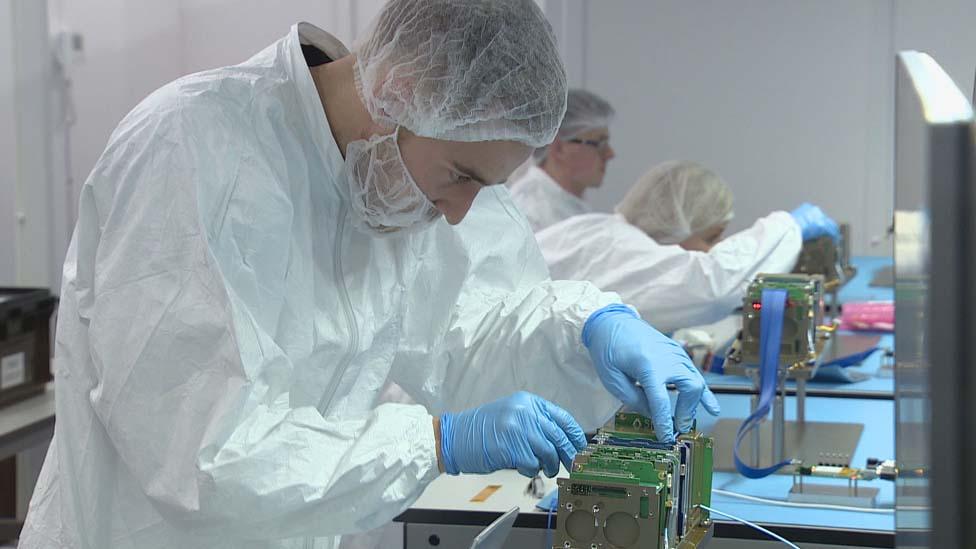
Scotland's space industry is growing, with 70 Glasgow-built satellites already up there
It is part of a Scottish space industry that employs more than 7,000 people and turns over £2.5bn a year.
More than 70 Glasgow-built satellites are already up there.
The Clyde Space company were first with UKube-1, built for the UK Space Agency.
Then came the data company Spire which has its European base in the city.
Thanks to them nowhere outside California has more satellites in orbit than Glasgow.
'Sun-synchronous orbit'
But until now all of Scotland's small satellites have had to piggyback on large rocket vehicles like Russia's Soyuz. That meant that if the principal payload was delayed, so was the CubeSat
The Vector-R is designed to jump the queue by lifting up to 55lbs of small satellites.
They will be placed in a sun-synchronous orbit which means a probe will be in the same position above the Earth each day, enabling it to track changes down here.
The Alaska launch will be the first orbital attempt by the Vector-R.
It will have room for another satellite so Alba Orbital have sub-contracted the slot to an experimental probe from Delft University of Technology in the Netherlands.
Because after years of our satellites hitching a ride it's Scotland's turn to offer someone else a lift.
- Published31 January 2017
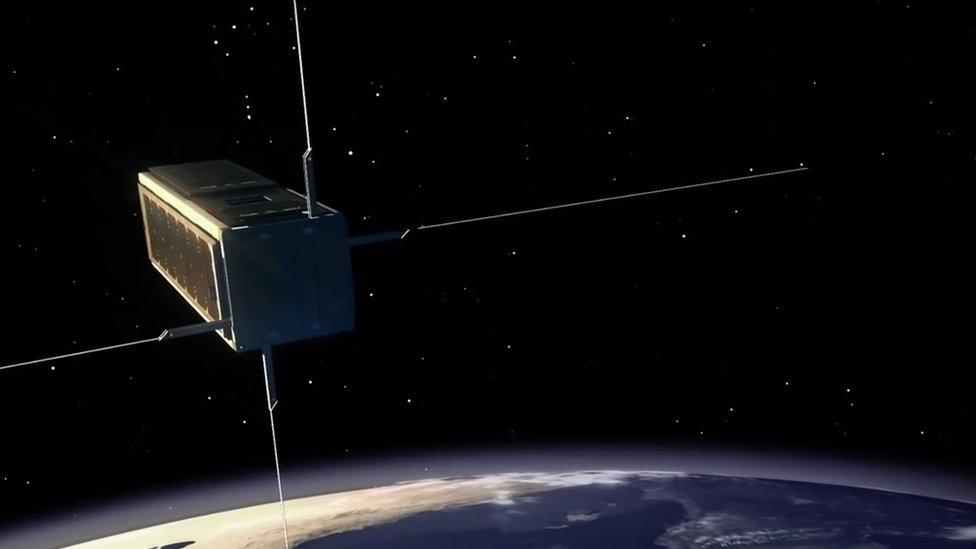
- Published28 January 2017
